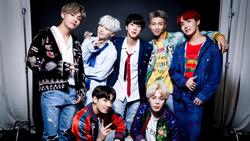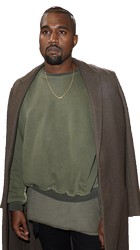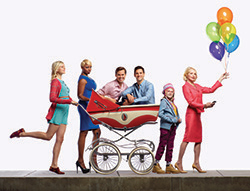If you drove by Citi Field in Queens, New York last Friday, you probably haven’t seen so many tents since last year’s abysmal Fyre Fest.
About 300 fans camped out ahead of a concert for BTS that was held last Saturday night, so they could get the closest possible spot to their favorite band.
BTS, which stands for Bangtan Sonyeondan, or Bulletproof Boy Scouts, is a Korean pop boy band that consists of seven members.
Their latest album, Love Yourself: Tear, released last May, reached Number One on Billboard’s 200 Chart.
They’re currently on the North American leg of their international Love Yourself Tour, which started in Los Angeles on Sept. 4 and concluded last Saturday night at Citi Field.
Everywhere the band travels, thousands of adoring fans follow.
But how did BTS and K-pop become so popular in a country where Korean isn’t the dominant language?
It turns out, K-pop has been permeating the U.S. for a while.
The first K-pop convention, known as KCON, took place in October of 2012 at Atlanta, Georgia’s Verizon Wireless Amphitheater.
KCON supports the world of Hallyu, which directly translates to the “Korean Wave.”
At KCON, Korean culture is demonstrated through music, panels for food, TV shows, makeup and other popular workshops.
What started out as a one-day convention in Atlanta has transformed into a three-day event in New York City and Los Angeles.
However, the music has become a large part of KCON and the genre has gained popularity with mostly teens and young adults across the country.
There are a few theories as to how K-pop took the U.S. by storm.
Some say actress Emma Stone sparked the country’s interest.
When asked about the genre in an interview on Conan, she said, “It’s the best thing you’d ever seen.”
This drove people to search for who was at the top of Stone’s playlist.
But associate professor and WMCX advisor Aaron Furgason, Ph.D., said the popularity of K-pop and its expansion is allotted to, “One simple answer: Worldwide Web.
We now have instant access to pop music produced outside of the traditional places [like the] United States and England.”
Many K-pop groups have well over 50 million music video views on their YouTube channels.
The music has also appeared on Ellen, The Bachelor, and America’s Next Top Model, along with movies like Fast and Furious 4 and the trailer of Fantastic Four.
Even with a few lines transitioning a scene, the immediate attention towards the music is groundbreaking.
Furgason said he has heard the music “on both terrestrial/satellite radio and via YouTube videos,” which I found interesting because it is not on the pop stations I listen to.
K-pop is finding its way on the airwaves because of the catchiness of their songs.
One of BTS’s most streamed songs is “Blood, Sweat & Tears” and even though I don’t speak Korean, the beat behind the music left me wanting to dance.
The sound of K-pop is like any pop song sung by artists in the top 100.
Their songs mainly resemble a mixture of EDM and pop, which makes you not only want to listen to more, but also to sing along, even if you don’t know the words
After speaking with freshman Katie Schauer, who listens to the genre, it all became clear as to why it is so popular.
The upbeat music instantly sparked her interest at a party and the fact that she could connect the music to her own Asian heritage added greater weight to the importance of BTS’s music.
From there, she began listening to other K-pop artists like Wonder Girls, SNSD, CL, Exo and NCT.
With the Backstreet Boys and One Direction being the two boy bands of our generation that came from the west, BTS has become the new westernized boy band.
BTS’s success has led to the exposure of other Korean music in the U.S. and fans are just as enthusiastic.
Concerts for any K-pop performers are rave-like with glow sticks, fan chants, and extremely high volume, which has reached record highs that are capable of causing hearing damage.
Katie does not see the genre settling down any time soon and claims, “K-pop is still going stronger than ever.”
Katie isn’t the only one who feels this way.
Furgason added, “As with all pop bands, it will be incredibly popular for a period of time and then it will inevitably be replaced by some other pop sound/band for the next generation of listeners.”
While he entertained the thought of K-pop as a fad, Furgason really believes, “K-pop suggests that because of the Internet, we are truly living in a global world, for good or bad, depending on your musical taste.”
Many music videos for K-pop are dystopian in nature or robotic, which leaves us to believe that K-pop may be the future.
What’s definitely in the future for BTS is more dates for their Love Yourself Tour.
Their second show in London is today to kick off the European leg of the tour.
BTS will end their European dates on Oct. 20, then head over to Japan, where they will tour the country from Nov. 13 to Feb. 17.
As for the hits to come, I’m sure you’ll see BTS and other bands of the genre pop up on the Billboard Charts.
PHOTO TAKEN from GRAMMY.com



